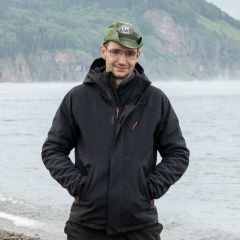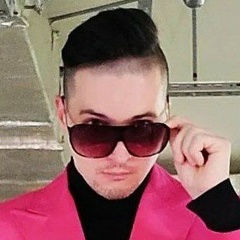В выходные и последний день я много времени занимался всякой несвойственной себе оффлайн активностью.
Пересобирал комп, паял, обливал Петренчука холодной водой в рамках местного обострения шизофрении, вот шил даже, специально заходя в магазин шитья для покупки требуемых ингредиентов.
В связи с чем у меня появилась мысль.
В одном интервью нидерландско-русского ученого пробегала мысль, вполне банальная, что физики теоретики, развивающие всякие струнные, бранные и т.д. теории не физикой, в общем, занимаются. Слишком мало экспериментального, слишком много додумываний. Физики, я так понимаю, считают, что эти чуваки занимаются математикой, хотя математикой как таковой это тоже называть сложно.
И тут я вспомнил фразу Быкова, которую он использовал, рассказывая о детективах. (я не уверен, правда, что это Быков ее придумал) Хороший автор детективных романов не ищет убийцу на страницах своей книги. Он, вообще говоря, знает кто убил. Хороший автор ищет Бога.
Так же и теорфизики, примерно представляя кто у нас убийца во вселенной (в рамках границ применимости), ищут Бога в некоторых элементарных телодвижениях вселенной, выискивая идеальный неделимый атомарный факт.
Естественно, главным инструментом этих метафизических метаний становится матаппарат, который в данном случае уже перестает быть просто инструментом выражения каких-то зависимостей. Матаппарат для теорфизиков и чистых математиков становится частью субъективной метафизической вселенной, за границей эксперимента и проверяемых закономерностей. Сама неявно (но вполне понимаемо) метафизическая постановка вопроса производит принудительную инсталляцию матаппарата в субъектность.
Поэтому, например, слишком математичные личности так плющатся от прикладной математики и тех вещей, которые прикладники говорят и пишут. Потому что прикладники не просто вольно обращаются с каким-то там аппаратом. Они вольно обращаются с частью субъективной вселенной математика, через которую он воспринимает мир.
Вывод.... Мммм...
Предлагаю перенести чистмат и матфизику на филфак. Пусть вокруг них сразу будет много бап.
Пересобирал комп, паял, обливал Петренчука холодной водой в рамках местного обострения шизофрении, вот шил даже, специально заходя в магазин шитья для покупки требуемых ингредиентов.
В связи с чем у меня появилась мысль.
В одном интервью нидерландско-русского ученого пробегала мысль, вполне банальная, что физики теоретики, развивающие всякие струнные, бранные и т.д. теории не физикой, в общем, занимаются. Слишком мало экспериментального, слишком много додумываний. Физики, я так понимаю, считают, что эти чуваки занимаются математикой, хотя математикой как таковой это тоже называть сложно.
И тут я вспомнил фразу Быкова, которую он использовал, рассказывая о детективах. (я не уверен, правда, что это Быков ее придумал) Хороший автор детективных романов не ищет убийцу на страницах своей книги. Он, вообще говоря, знает кто убил. Хороший автор ищет Бога.
Так же и теорфизики, примерно представляя кто у нас убийца во вселенной (в рамках границ применимости), ищут Бога в некоторых элементарных телодвижениях вселенной, выискивая идеальный неделимый атомарный факт.
Естественно, главным инструментом этих метафизических метаний становится матаппарат, который в данном случае уже перестает быть просто инструментом выражения каких-то зависимостей. Матаппарат для теорфизиков и чистых математиков становится частью субъективной метафизической вселенной, за границей эксперимента и проверяемых закономерностей. Сама неявно (но вполне понимаемо) метафизическая постановка вопроса производит принудительную инсталляцию матаппарата в субъектность.
Поэтому, например, слишком математичные личности так плющатся от прикладной математики и тех вещей, которые прикладники говорят и пишут. Потому что прикладники не просто вольно обращаются с каким-то там аппаратом. Они вольно обращаются с частью субъективной вселенной математика, через которую он воспринимает мир.
Вывод.... Мммм...
Предлагаю перенести чистмат и матфизику на филфак. Пусть вокруг них сразу будет много бап.
On weekends and the last day, I spent a lot of time doing all the unusual offline activities.
I reassembled the comp, soldered, doused Petrenchuk with cold water as part of local exacerbation of schizophrenia, so I even sewed it, specifically going to the sewing shop to buy the required ingredients.
In this connection, I had a thought.
In one interview with a Dutch-Russian scientist, a thought ran through, quite banal, that physicists are theorists developing all sorts of strings, expletives, etc. theories are not physics, in general, are engaged. Too little experimental, too much thinking up. Physicists, as I understand it, believe that these dudes are engaged in mathematics, although it is also difficult to call this mathematics as such.
And then I remembered the phrase Bykov, which he used when talking about detectives. (I'm not sure, though, that it was Bykov who invented it) A good author of detective novels is not looking for the killer in the pages of his book. He, generally speaking, knows who killed. A good writer is looking for God.
Likewise, theorophysics, roughly imagining who our killer is in the universe (within the limits of applicability), are looking for God in some elementary movements of the universe, looking for the perfect indivisible atomic fact.
Naturally, the main instrument of these metaphysical throwings becomes the apparatus, which in this case is no longer just a tool for expressing certain dependencies. The mata-apparatus for teorphysicists and pure mathematicians becomes part of the subjective metaphysical universe, beyond the boundaries of experiment and verifiable regularities. Implicitly (but quite understandably), the metaphysical posing of the question makes the compulsory installation of the apparatus into the subjectivity.
Therefore, for example, too mathematical persons so flatten out from applied mathematics and those things that applied and applied scientists say and write. Because applied scientists do not just freely handle any device there. They freely handle the part of the subjective universe of mathematics, through which he perceives the world.
Conclusion .... Mmmm ...
I propose to transfer pure mathematics to philology. Let there be a lot of bap around them right away.
I reassembled the comp, soldered, doused Petrenchuk with cold water as part of local exacerbation of schizophrenia, so I even sewed it, specifically going to the sewing shop to buy the required ingredients.
In this connection, I had a thought.
In one interview with a Dutch-Russian scientist, a thought ran through, quite banal, that physicists are theorists developing all sorts of strings, expletives, etc. theories are not physics, in general, are engaged. Too little experimental, too much thinking up. Physicists, as I understand it, believe that these dudes are engaged in mathematics, although it is also difficult to call this mathematics as such.
And then I remembered the phrase Bykov, which he used when talking about detectives. (I'm not sure, though, that it was Bykov who invented it) A good author of detective novels is not looking for the killer in the pages of his book. He, generally speaking, knows who killed. A good writer is looking for God.
Likewise, theorophysics, roughly imagining who our killer is in the universe (within the limits of applicability), are looking for God in some elementary movements of the universe, looking for the perfect indivisible atomic fact.
Naturally, the main instrument of these metaphysical throwings becomes the apparatus, which in this case is no longer just a tool for expressing certain dependencies. The mata-apparatus for teorphysicists and pure mathematicians becomes part of the subjective metaphysical universe, beyond the boundaries of experiment and verifiable regularities. Implicitly (but quite understandably), the metaphysical posing of the question makes the compulsory installation of the apparatus into the subjectivity.
Therefore, for example, too mathematical persons so flatten out from applied mathematics and those things that applied and applied scientists say and write. Because applied scientists do not just freely handle any device there. They freely handle the part of the subjective universe of mathematics, through which he perceives the world.
Conclusion .... Mmmm ...
I propose to transfer pure mathematics to philology. Let there be a lot of bap around them right away.
У записи 10 лайков,
0 репостов.
0 репостов.
Эту запись оставил(а) на своей стене Александр Беспалов




























